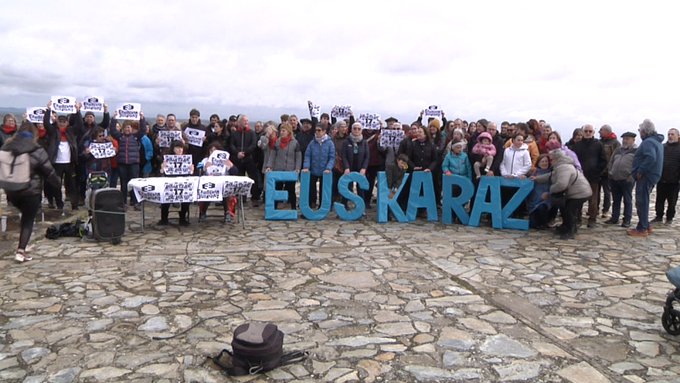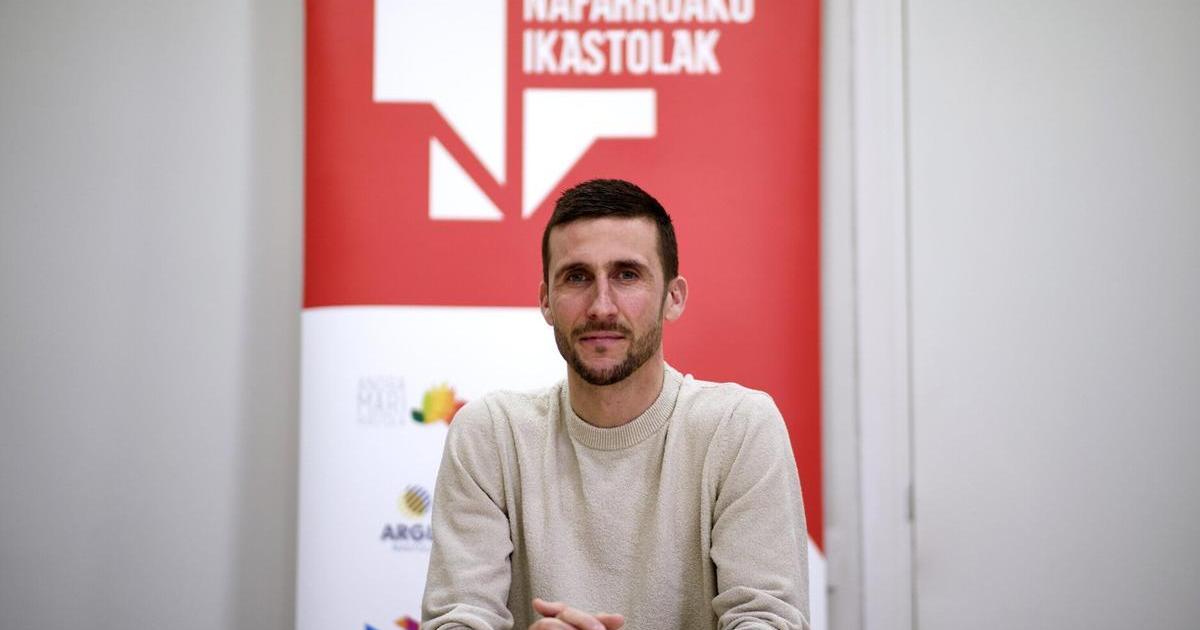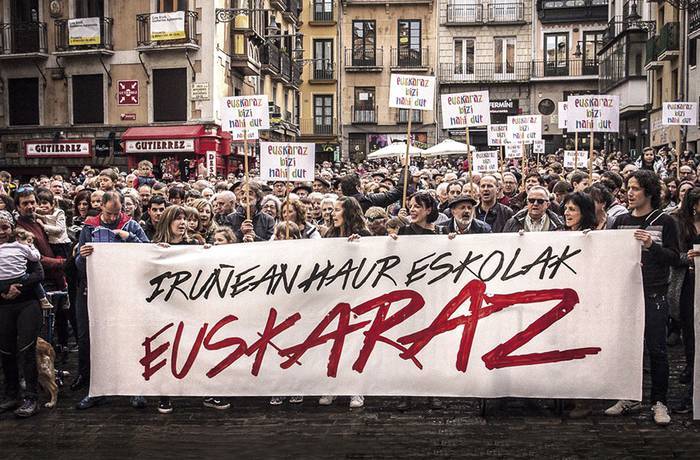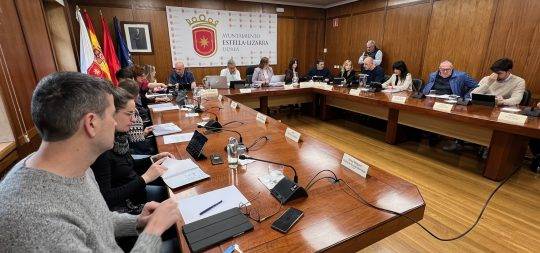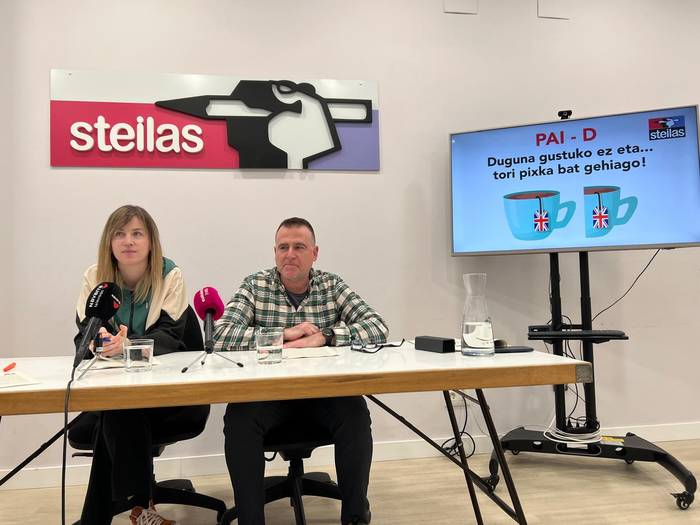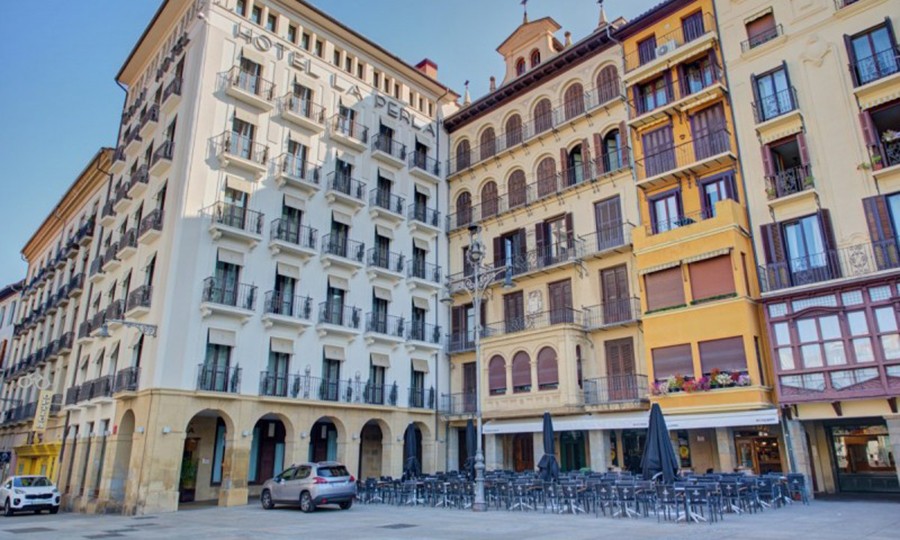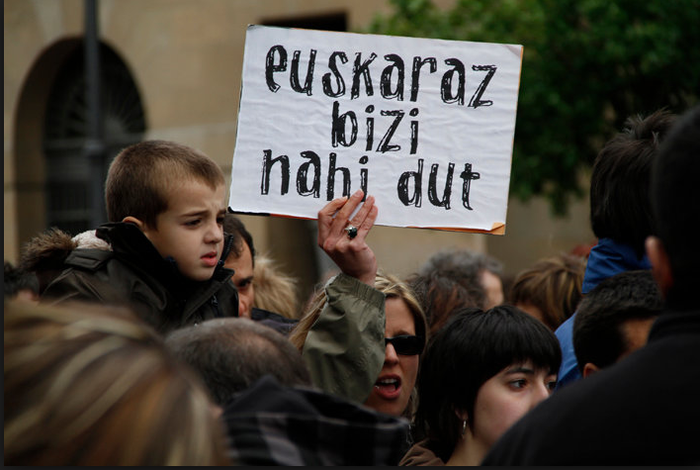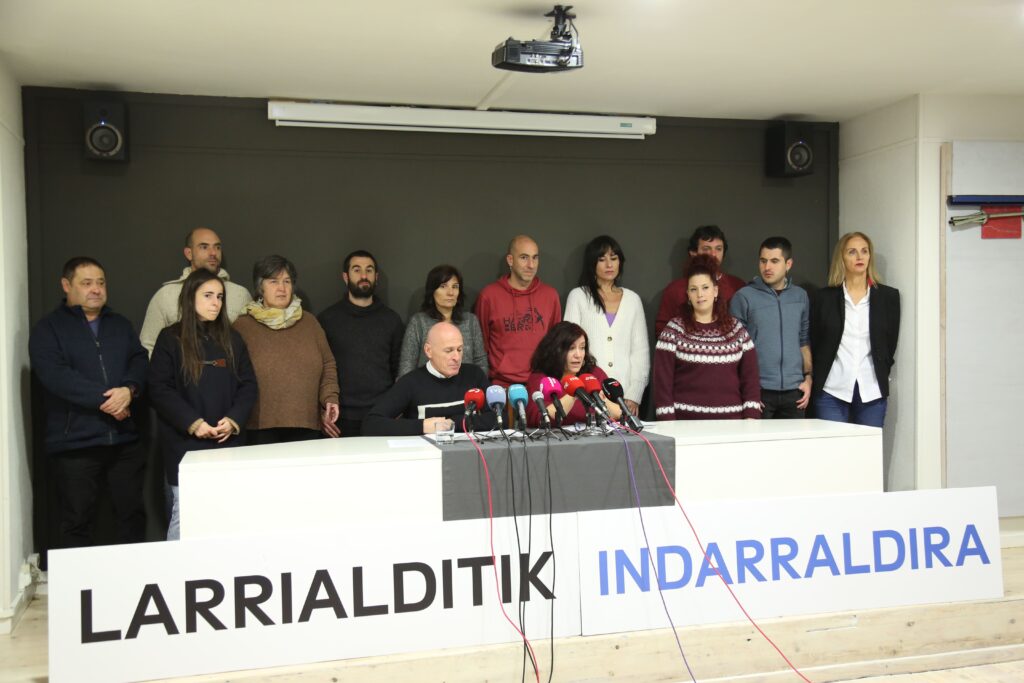"The Basque Country has been and is fundamental in the history of Navarre"
- The Navarro historian and sociologist Peio Monteano Sorbet has a long history in the study of the Basque language. On this occasion, he has shown that although the documents that have come from Antiquity are in Spanish, the language spoken in Navarre was the Basque language. These documents were only the tip of the iceberg. He organized the Navarrorum exhibition, with 36 pieces of great value exposed in the Archive of Navarra. It is an "exposition of the repair of the damage caused", he said.
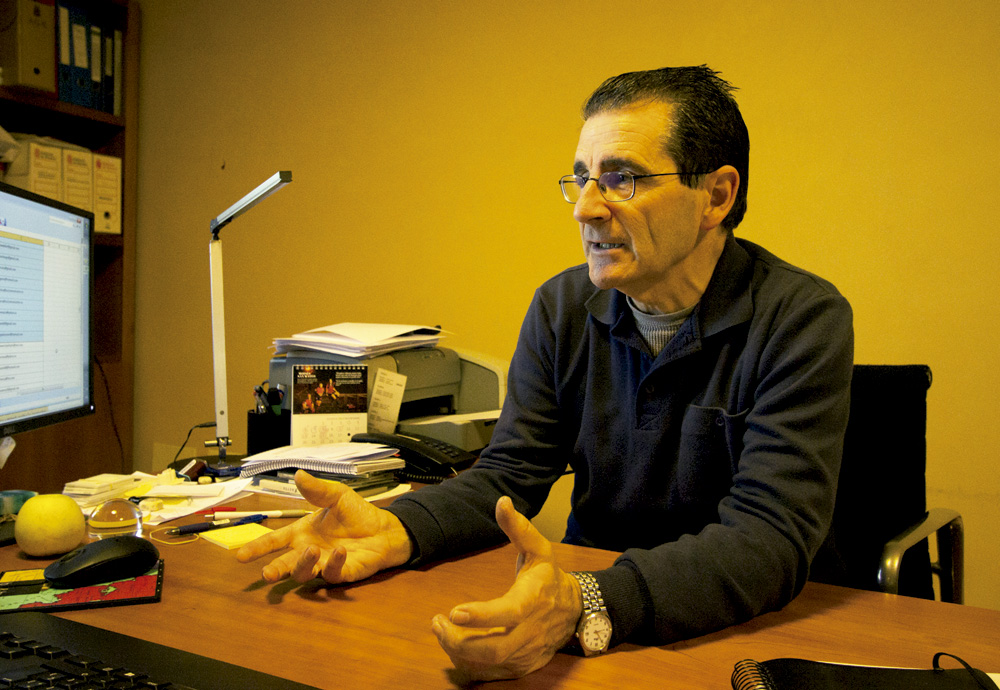
Although it has been considered that the first texts in Basque were from the time of the Renaissance, it has been demonstrated that they were earlier.
Until now, we believed that the Basque Country jumped from orality to the printed book, without going through the manuscript. Recent discoveries have shown that in the Middle Ages he had already written in Basque. You can hardly see it, but you don't have to wait for the printing press to appear.
If the Basque language was not used to write at that time, how did the writings of then come to us?
Texts in other languages The Basque language was filtered in Latin texts, especially in the names of people and gods. These are the cultural elements that most endure in the face of changes in language; in many peoples, the names in Basque have remained united to the earth.
“The conclusion we have drawn is that 80% spoke in Euskera”
Does not writing the language spoken can lead to historical manipulation?
More than manipulation leads to errors. Historians fall into two mistakes: on the one hand, to think that writings are a sample of social life; and on the other, to equate the language that is written with that spoken. This is not correct. In fact, there is a language that citizens use, that is not written, and there are other languages, that are written a lot and that hardly anyone uses. These errors create the illusion of writing: to think that the languages in which they were written were spoken.
The filtered texts indicate that in the sixteenth century the majority of the Navarre population spoke in Basque.
In the 16th century there was a documentary explosion, we have thousands of documents from that time. This allows you to do statistical studies and see what's behind this diffused glass. Thanks to the translators of the time, a generation of scribes put on record the language in which they spoke to the witnesses of the pleas. The conclusions we have drawn are that 80% of the population of Navarre spoke in Basque and that 50% were monolingual. Knowing this, the question arises: If the situation was that of the 16th century, what had happened before? In fact, language did not improve over time...
This shows that the conquest did not involve a colonization of the language.
This is one of the conclusions of the research. The conquest was a military occupation, but it did not mean a colonization of culture. He gave prestige to Castilian; however, in the previous situation the administrative languages were the Navarre romance and the Bearnés, the kings did not speak Basque. Therefore, the situation in the Basque Country did not change.

What was the influence of the printing press?
The printing press, together with the religious breakdown in Europe, revolutionized all languages. It made it possible to create books, much cheaper and in large quantities. But in order to have readers, the book had to be accessible. This led to the standardization of languages. There are two options for deciding what the standard language would be: first, making a unified language; and second, choosing a dialect and establishing it. In the case of the Basque Country, they chose the second language, and established it in the first language. On the other hand, there were no printers in Iparralde, and in Hegoalde only in Pamplona. That's why Pamplona became a core.
What was the evolution of the dialects?
With the dialects we have doubts. Dialectologists place in the Middle Ages the diversification of dialects, very late. They say that there was a diversification as the territories became politically separate from Navarra. This raises a question: What kept the Basque unified for so long? Without being an official language, without authority, without a real academy and without a written tradition... When these kinds of doubts arise, we think that perhaps we are not becoming aware of the whole history of the Basque Country.
How did the process of centralization of the 18th century influence the Basque Country?
In the mid-eighteenth century, the decline of the Basque Country and the demand for Castilian began. The extension of education, measures to reconcile culture and nationalism made the Basque Country fall. The process that caused the most damage to the language was the expansion of education. It was driven by the elites, and first by the men and the elitist, then by the men and, finally, by the women; they were the most maintained by the Basque. When education began to be accessible to the lower classes, the number of monolingual Euskaldunes decreased.
Did women and men experience the castellanization process differently?
As women were at home, this process occurred among men, as Castilian was an instrument for the transition to the public world. Moreover, until then there was no public education, so values were transmitted at home, in the monopoly of women. However, upon the departure of the children, the role of the woman's educator lost strength. The Basque country remained in the private sector, was expelled from the public sector: from the city, from shops, from culture.
“We wanted to make a statement of compensation, because this has not happened here.”
What happened next?
In the 19th century, the model for cultural unification put a single language at the centre. The Basque Country suffered a clash between supporters and detractors, as well as a phenomenon of self-hatred. Many people moved away from the Basque Country to move away from its humble origins, becoming the main enemies of its language. They were looking for status because the Basque language was the language of the peasants, the peasants, the maids. The Basque people were oppressed in the schools, and the families applauded it.
Did you want to show all this at the Navarrorum exhibition?
Somehow we wanted to make a “compensation exhibition”. Because there have been no exhibitions on this subject here, because there have largely been no political-cultural interests.
We want to show the Navarros that Euskera has been and continues to be a fundamental part of the history of Navarre. We also wish to convey the honour to them, because this shows that Navarre has been the axis of the Basque world. Our first objective is to pass on the contents of the exposure to Navarros, but we will also use it to spread them beyond our borders. Because many times you have to come from the outside to remember the value of the treasure that we have here.
Prentsaurrekoan, maiatzaren 17an ospatuko duten Erriberako Euskararen Egunaren inguruko argibideak eman dituzte. Ume, gazte zein helduentzat zuzendua izango da. Ekimena, Erriberan egiten diren ekimenetan indarrak biltzeko eta euskararen normalizazioaren alde saretzeko... [+]
Nafarroako Ikastolen Elkarteak lehendakari berria du. Oier Sanjurjok hartu dio lekukoa Elena Zabaleta Andresenari. Beste zazpi kide izanen ditu alboan Sanjurjok.
Ez dira gutxi azken boladan euskara bere onenean ez dagoela eta bere transmisioa bermatuta ez dagoela ohartarazten ari diren ahotsak. Bestetik, inork ez du ukatzen hezkuntzak ezinbesteko betebeharra duenik euskara eta euskal kulturaren biziraupenerako. Erronka estrategikoa... [+]
Iruñeko haur eskoletako zuzendariek, EH Bildu, Geroa Bai, Zurekin Nafarroa eta PSNren arteko akordioa kritikatu dute. “Murgiltze ereduaren alde egin dugu beti, baina inoiz ez da gure iritzia kontutan hartzen” salatu du Euskalerria Irratian, Garikoitz Torregrosa... [+]
Euskarazko eskaintza handitzeko akordioa erdietsi dute EH Bilduk, PSNk, Geroa Baik eta Zurekin Nafarroak
Plazara, AEK, Uda Leku, Dindaia eta Ebete antolakundeak Baionan elkartu dira Famili'on egonaldi ibiltariaren lehen edizioa aurkezteko. Hizkuntza mailaren arabera eskaintza bat edo beste egongo da eta haur zein gurasoentzat izango da udaberrian.
Administrazio Epaitegiak arrazoia eman dio EH Bilduk Lizarrako plantilla organikoaren hizkutnz profilen aurka jarritako helegiteari.











